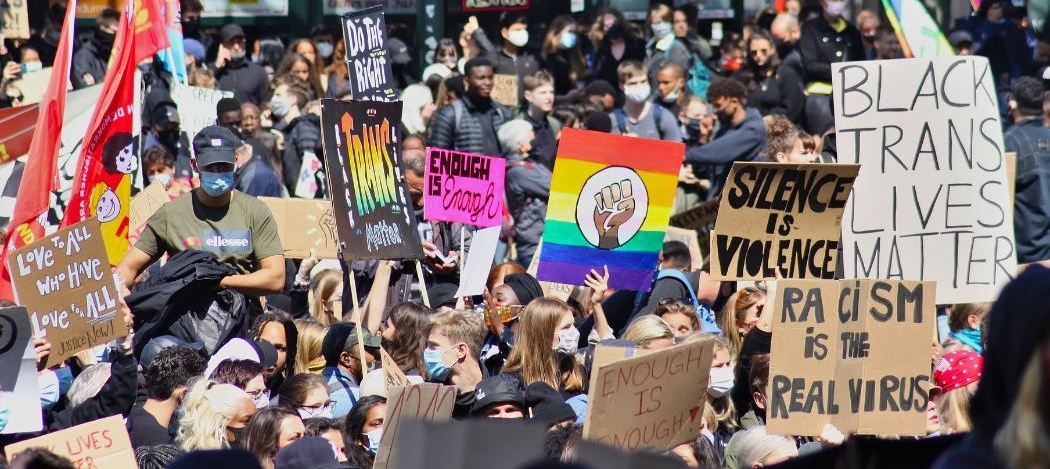The study of the politics of identities is a cross-cutting research area that draws faculty from all areas of the discipline and beyond. Faculty and students interested in identities examine it as both cause and effect, studying the ways in which race, ethnicity, class, gender, sexual orientation, religion, and other politically relevant factors shape political behavior and attitudes. We also explore the ways in which identities are constituted, and what this means for politics.
Our research and teaching address the powerful role played by ethnicity, gender, and race in politics across the world. Our faculty and students work on many dimensions of identity, but we have particular expertise in public opinion, social mobilization, immigration, and citizenship. We seek to understand how these factors shape and are shaped by ethnicity, gender, and race. We approach identity as a crucial factor in politics in many areas of the globe, including the United States, and our faculty have wide-ranging area expertise that they bring to bear on large questions of political identities.
Faculty:
- Amit Ahuja (CP)
- Kathleen Bruhn (CP)
- Alison Brysk (CP)
- Bridget Coggins (IR)
- Alfredo Gonzalez (AP)
- Pei-Te Lien (AP)
- Daniel Masterson (CP)
- Will Nomikos (IR)
- Christopher Parker (AP)
- AJ Rice (AP)
- Heather Stoll (CP)
Emeritus Faculty:
- M. Kent Jennings (AP)
- Cynthia Kaplan (CP)
Associates:
The Politics of Identities group encourages the participation in programs across the UCSB campus. We collaborate with a number of related groups and departments. These collaborators include Sociology, History- Comparative Race and Ethnicity, the Broom Center for Demography, and the Center for Middle East Studies; and the departments of Anthropology, Asian American Studies, Black Studies, Chicano Studies, Feminist Studies, Global Studies, Linguistics, and Religious Studies.
Identity Events:
The Politics of Identities group sponsors three workshops a quarter at which students and faculty from across UCSB present their ongoing research. Students present their papers in politics of identities (see requirements) and are also encouraged to present seminar papers, conference papers, draft articles and chapters of their dissertation for discussion and feedback. In addition to regular workshops, the Politics of Identities group sponsors lectures by outside experts in the identity field.
Politics of Identities Events, 2024-25
Thursday, May 8, 2025 - MCC Theather and Lounge
Panel: 4 - 5:30pm; Reception: 5:30-7pm
Boundless Love - Enduring Legacy of Cedric J. Robinson in Teaching, Research, and Activism
Panelists: Dr. Françoise Cromer, Dr. H. L. T. Quan, Dr. Marisela Marquez, Dr. Tiffany Willoughby-Herard, Dr. Jasmine Noelle Yarish, Dr. Greogry Freeland, and Elizabeth P. Robinson.
Moderators: Dr. AJ Rice and Dr. Chase Hobbs-Morgan.
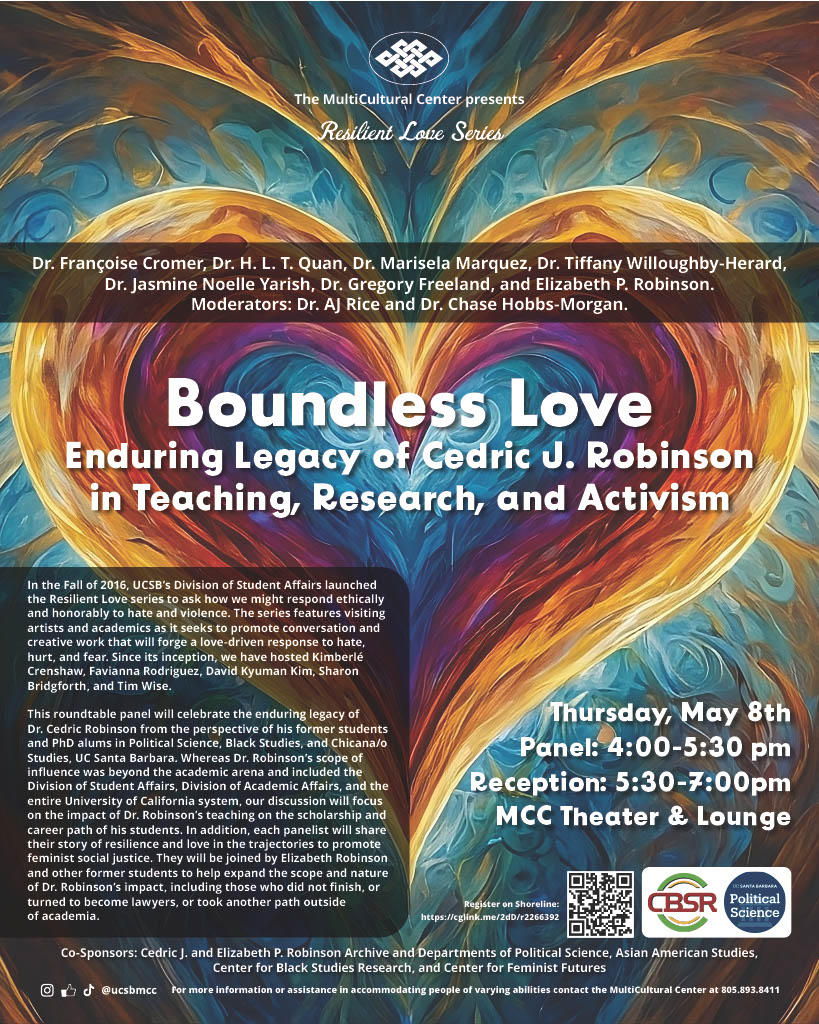
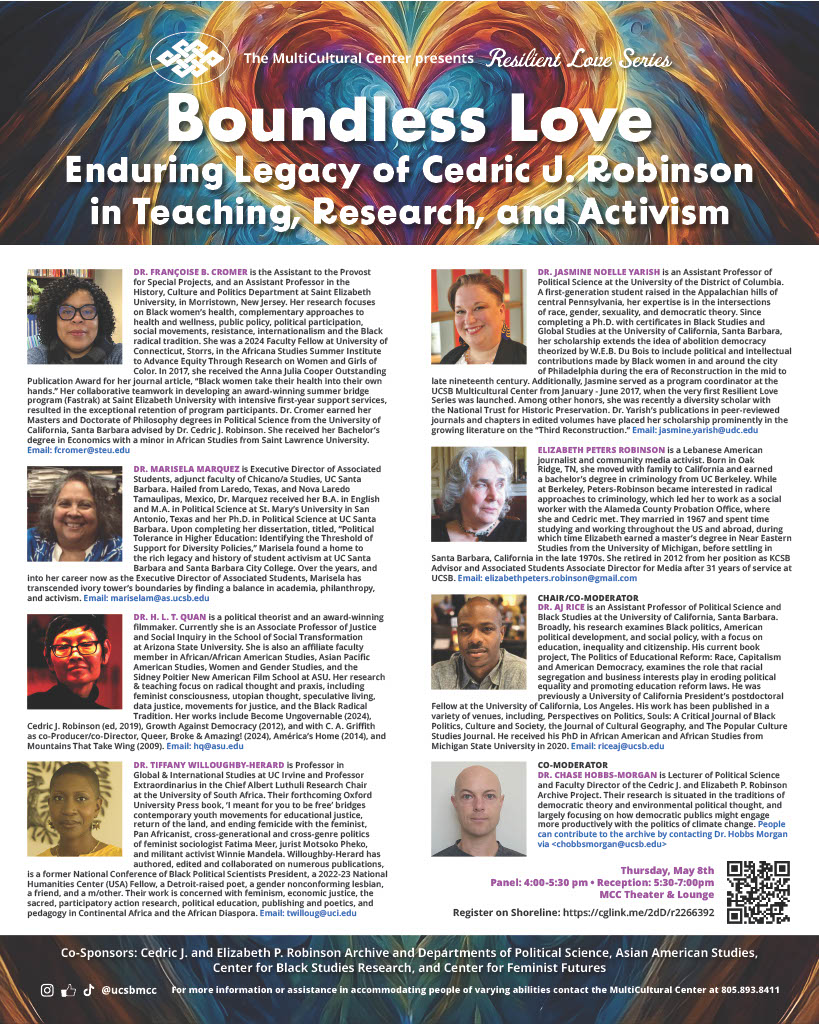
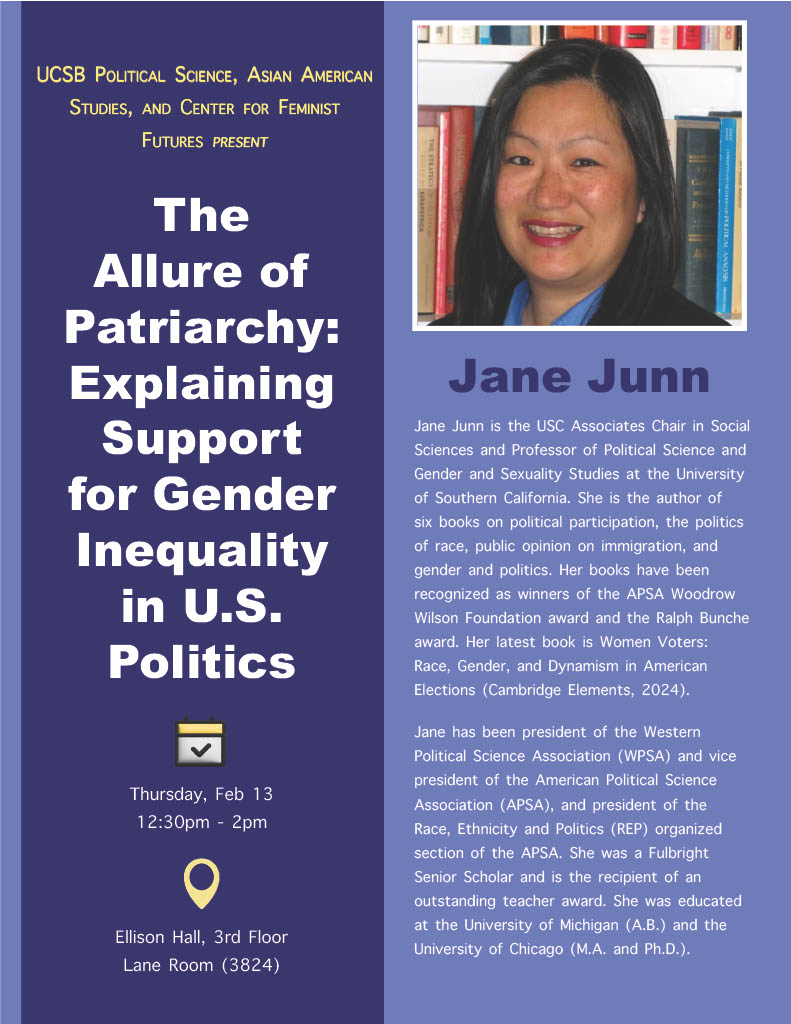
Thursday, February 6, 2025, 2pm- 3:30pm, @Ellison Hall 3824
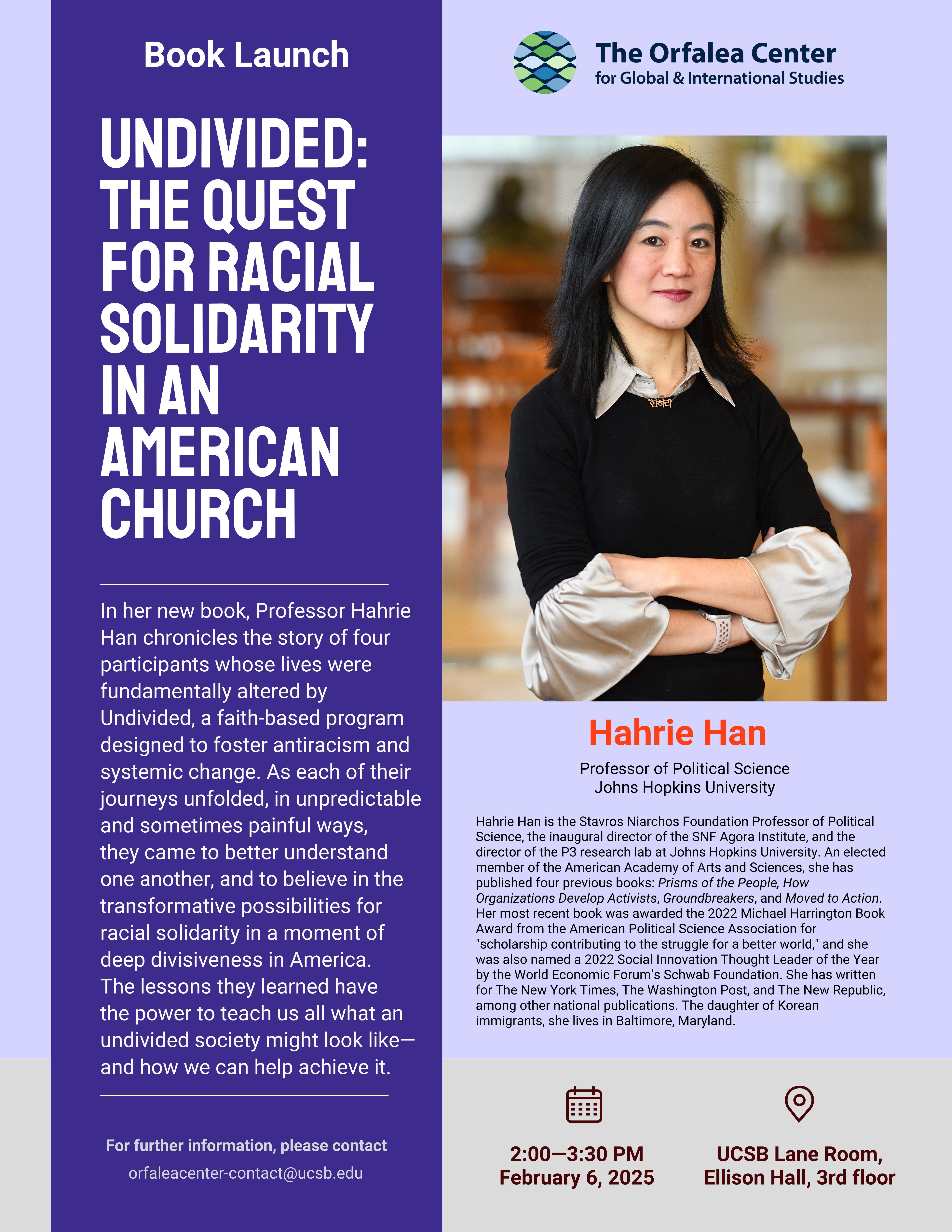
Wednesday, October 9, 2024, 5pm - 6:30pm, @HSSB 6220 McCune Conference Room
Requirements:
Politics of Identities (POI) can be selected as a secondary field in conjunction with one of the traditional fields. The POI is distinct from traditional sub-fields. Its theories, concepts, and empirical work incorporate expertise from across the traditional sub-fields and it is interdisciplinary in nature.
Click here for a printable version of the Politics of Identities requirements.
Areas of Specialization
The areas of specialization allow for a wide-range of interests including political theory, human rights, policy analysis, international relations (ethnic conflict, civil war), comparative and American politics (ethnicity and political parties, social movements, democratic development), religion, immigrants, and demography among others.
- Ethnic & Identity Conflict1
- Ethnic/Racial Politics (Comparative and American Politics)
- Intersectionality (Gender, Sexuality, Race, Class, Religion)
- Migration and Citizenship
- Theories and Concepts of Identity
Courses
Identity Events
Students who intend to declare identity as a secondary exam field within Political Science are required to attend the identity events at least once per quarter with credit given (1 credit per quarter). POI students are expected to attend a minimum of six identity events before completing their qualifying papers on POI. Students are strongly encouraged to present their working papers in one of the POI workshop panels offered periodically upon demand.
Research Paper/Field Paper
[1]Ethnic and identity conflict can include a focus on conflict in one or more of the following traditional subfields: international relations, comparative politics, and American politics.





